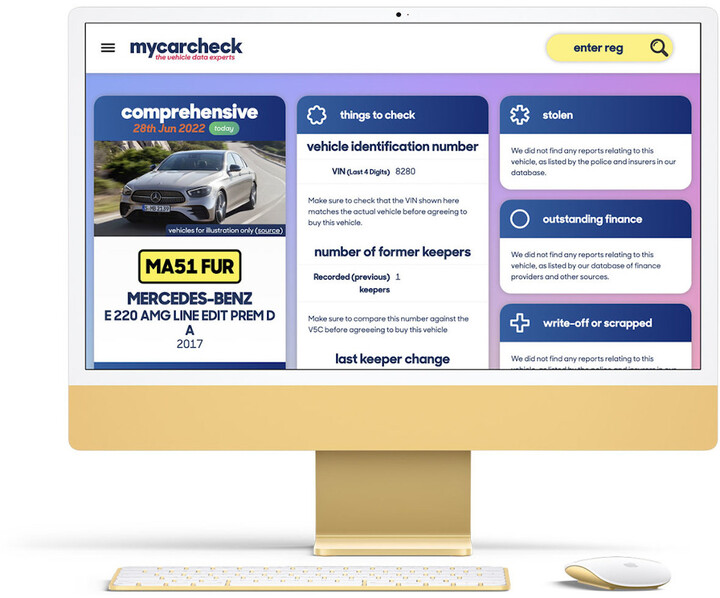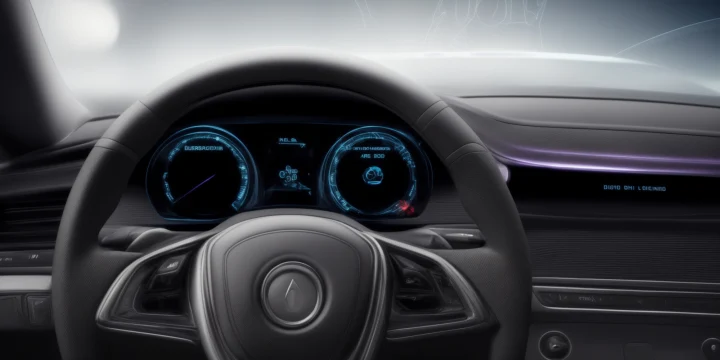
a guide to driverless vehicles
FREE Car History Check
See MOT history, valuations, detailed specs and more… AND upgrade to see if any vehicle has been stolen, has finance or has been written off from just £4.99
The world is on the verge of a transportation revolution, and self-driving vehicles are at the forefront. In the UK, there is a lot of excitement around this technology and its potential to transform how we get around.
However, there is also some apprehension about self-driving vehicles, as they are still very new and untested. This guide will help you understand what self-driving vehicles are, how they work, and what the benefits and risks are.
What is an autonomous driving system?
An autonomous driving system (ADS) is a technology that allows a vehicle to drive itself without the need for a human driver. ADSs use sensors and computers to navigate, making them much more accurate and reliable than human drivers.
Most ADSs are still in development, but there are already a few commercially-available systems on the market. Tesla's Autopilot, for example, is an ADS that can be added to certain Tesla vehicles. It uses radar, cameras, and GPS to automatically steer, change lanes, and park the car.
What are the benefits of self-driving vehicles?
There are many potential benefits of self-driving vehicles, including:
- Increased safety: One of the biggest advantages of self-driving vehicles is that they are much safer than human-driven vehicles. In 2020, over 1400 people were killed in cars and the vast majority of these accidents were caused by human error, such as distracted driving or drunk driving. With ADSs, these kinds of accidents could be prevented.
- Reduced traffic congestion: Self-driving vehicles can communicate with each other to avoid traffic jams and optimise routes. This could lead to shorter commute times and less traffic congestion overall.
- More free time: If you have a long commute, you could use that time to do other things instead of sitting behind the wheel. Or, if you're not comfortable driving, you could let the ADS do the work for you.
What are the risks of self-driving vehicles?
There are also some potential risks associated with self-driving vehicles, including:
- Job loss: One of the most frequently cited concerns about self-driving vehicles is that they will lead to job loss, particularly for truck drivers. If self-driving trucks become widespread, these jobs could be at risk.
- Hacking: Self-driving vehicles rely on computers and sensors to navigate, which means they are vulnerable to hacking. If a hacker were able to take control of a self-driving vehicle, they could cause it to crash or drive erratically.
- Technology failures: Like any new technology, self-driving vehicles are not perfect. There have been several highly publicised accidents involving self-driving vehicles, including a Tesla that crashed into a tree and a Uber that hit a pedestrian. While these accidents are rare, they do highlight the potential risks associated with the technology.
Are there fully driverless cars?
There are a few fully driverless cars on the road, but they are still very rare. These vehicles have no steering wheel, no pedals, and no human driver. Instead, they rely entirely on sensors and computers to navigate.
One of the most well-known fully driverless cars is the Google Self-Driving Car. This car has been in development since 2009, and it has been involved in several accidents. However, overall it has been very successful and it is considered to be one of the safest cars on the road.
What does FSD mean in Tesla?
FSD stands for Full Self-Driving. Tesla's Full Self-Driving system is an autonomous driving system that is currently in development. It will eventually allow Tesla vehicles to drive themselves without the need for a human driver.
At the moment, Tesla's FSD system is not yet available to the general public. However, Tesla has been testing it with a select group of users. These users have reported mixed results, with some finding it very useful and others experiencing issues.
When will self-driving cars be available?
It's difficult to say exactly when self-driving cars will be available to the general public. Some experts believe that they will be widely available within the next decade, while others believe that it will take longer.
In the meantime, there are a few companies that are already offering self-driving car services to limited numbers of users. These include Google's Waymo, Uber's Advanced Technologies Group, and Cruise.
What is the UK doing about driverless cars?
The UK is one of the leading countries in the world for autonomous vehicle research and development, with the government investing over £250 million into the technology so far.
Several companies are already testing self-driving vehicles on public roads in the UK, including Jaguar, Land Rover, Volvo, and Nissan. In addition, Heathrow Airport is currently trialling a driverless shuttle bus service.
What challenges do autonomous vehicles face?
There are a number of challenges that need to be overcome before autonomous vehicles can be widely adopted. These include technical challenges, regulatory hurdles, and public acceptance.
Technical challenges: One of the biggest challenges facing autonomous vehicles is the technology itself. Self-driving cars rely on a complex combination of sensors and software to navigate, and this technology is still being perfected. In addition, bad weather can pose a challenge for autonomous vehicles, as they rely on sensors to "see" the road.
Regulatory hurdles: Another challenge facing autonomous vehicles is regulation. Currently, there are no clear laws or guidelines governing the use of self-driving cars. This makes it difficult for companies to test and deploy autonomous vehicles.
Public acceptance: A third challenge is public acceptance. Many people are still hesitant to ride in a driverless car, and there is a lot of misinformation about the technology. In order to achieve widespread adoption, it will be important to educate the public about the safety and benefits of autonomous vehicles.
What company is leading in self-driving car technology?
There are several companies that are leading the way in self-driving car technology, including Tesla, Google, and Uber.
Tesla is a major player in the self-driving car space with its Autopilot system. This system uses radar, cameras, and GPS to automatically steer, change lanes, and park the car. Tesla's Autopilot system is currently available on select Tesla vehicles.
Uber is another company that is working on self-driving cars. In 2016, Uber launched a pilot program in Pittsburgh, Pennsylvania, US, to test its self-driving cars. Since then, the program has expanded to other cities, including San Francisco, California, US, and Toronto, Canada.
Google is also working on self-driving cars. The Google Self-Driving Car is one of the most well-known driverless cars. This car has been in development since 2009 and it has clocked over 1 million miles. Google's ultimate goal is to create a car that can drive itself without any human input.
What are the UK laws around self-driving vehicles?
Driverless vehicles are currently allowed to be tested on public roads in the UK, provided that they meet certain safety requirements. All driverless vehicles must have a qualified human driver who is able to take control of the vehicle if necessary.
According to the DfT, the introduction of self-driving cars may create up to 38,000 new employment opportunities in the UK and add £41.7 billion to the economy by 2035. The department said in April 2017 that it will allow hands-free driving on busy roads with lane-keeping technology at speeds of up to 37 mph. By 2025, a comprehensive regulatory framework for autonomous vehicles is expected.
With a massive technological shift happening in the industry, who knows how and what we’ll be driving in the years to come - either way, you need to know the history of your car to avoid pitfalls. Get a history check with mycarcheck and get peace of mind every time you get behind the wheel.




















